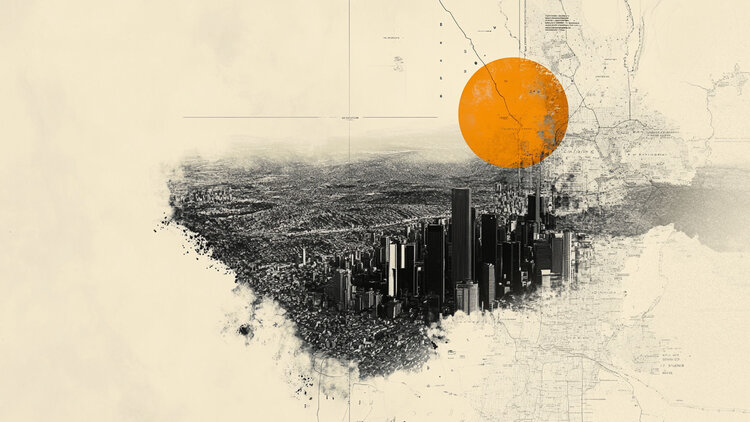The British Prime Minister warned the western countries not to have illusions. One of the recipients is probably Olaf Scholz. NATO Secretary-General Jens Stoltenberg expressed similar sentiments. Ukraine warns of a siege of a city to the east.
British Prime Minister Boris Johnson has called on Ukraine’s western allies to support the country in the long run and warned of the consequences of a possible Russian victory. In an opinion article for the newspaper The Sunday TimesJohnson wrote that Kiev’s supporters must ensure that Ukraine has “the strategic stamina to survive and ultimately win.”
“Time is of the essence,” Johnson wrote in an article published online late Saturday night. Everything will now depend on “whether Ukraine strengthens its defense capability faster than Russia renews its offensive capability.” The allies’ task, he said, is to “ensure that time will play in Ukraine’s favor.”
In his presentation, Johnson formulated one four point design for “permanent financial and technical assistance” to Ukraine. Some of them will have to be maintained “for years to come” and possibly strengthened.
Johnson explicitly warned against the permanent acceptance of Russian territorial gains in Ukraine. If we allow Russian President Vladimir Putin to do that, the world will not become more peaceful. Johnson literally wrote: “Such a farce would be the greatest victory of an invader in Europe since World War II.”
Johnson paid a surprise visit to Ukraine on Friday and met with Ukrainian President Volodymyr Selensky. According to the British government, it has offered Kyiv a “significant training program for the Ukrainian armed forces”.
Respectively, British forces could “train up to 10,000 (Ukrainian) soldiers every 120 days”.On Thursday, the heads of state and government of Germany, France, Italy and Romania voted in favor of granting Ukraine EU candidate status during a visit to Kyiv.
Meanwhile, NATO Secretary-General Jens Stoltenberg called on the member states of the military alliance not to relax in their support for Ukraine. “We have to prepare for the fact that it can take years,” Stoltenberg told Bild am Sonntag, referring to the Russian offensive. “We must not stop supporting Ukraine.”
Rising energy and food prices as a result of Russia’s aggressive war “are not comparable to the price Ukrainians have to pay daily with many lives.” If Russian President Vladimir Putin learns from the war “the lesson that he can continue as he did after the war in Georgia in 2008 and the occupation of Crimea in 2014”, then NATO states will pay a “much higher price”.
However, Stoltenberg also stressed that the Western defense alliance would not intervene in the fighting. “NATO will continue to support Ukraine in its self-defense, but it is not part of the conflict,” he said. “We are helping the country, but we will not send NATO troops to Ukraine.”
At the NATO summit in Madrid later this month, the secretary-general said the alliance would declare that “Russia is no longer a partner, but a threat to our security, peace and stability.” China’s rise is also a “challenge to our interests, our values and our security.”
Stoltenberg believes that further Western arms deliveries could decisively change the course of the war. Further “modern weapons” increase the likelihood that “Ukraine will be able to oust Putin’s troops from Donbass again.”
The governor of the Ukrainian subdivision of Donbas, Luhansk, Serhij Hajdaj, warned against further escalation of the Russian war in the region and asked the West for additional weapons. “It’s good that the West is helping us, but it’s coming too late.” Hajdaj said in an interview with the AFP news agency. He said there were “no safe places left” in the Luhansk region in the face of Russian attacks.
Hajdaj called for the delivery of “long-range” weapons, which should “arrive quickly”. He warned that Russian units could encircle the city of Lisichansk, cutting it off from supply through the access roads. “This is theoretically possible. This is a war, anything can happen,” Hajdaj told AFP.
The battles of the war today focus on the eastern Ukrainian region of Donbass. The situation is particularly dramatic in the strategically important city of Sjewjerodonezk in Luhansk, where the Russian army has been bombing the Asot chemical plant for days. According to Ukrainian sources, hundreds of citizens are there. The Ukrainian army is currently firing on Russian units in neighboring Lisichansk.
Conditions for civilians are catastrophic in Lyssychansk. In the city there is neither a mobile telephony nor access to water and electricity. The rest of the citizens are cooking with fires and looking for shelter in basements.
According to Hajdaj, “about 10%” of the population is still in the city. “We try to persuade people to leave. But some just refuse,” he said.
Hajdaj also acknowledged that there was a “small percentage” of people in the Luhansk region who hoped that Moscow would build a “Russian world” there. President Volodymyr Selenskyj, who had just been elected at the time, had appointed Hajdaj, who was born in Sjewjerodonezk, governor in 2019.
Source: Capital
Donald-43Westbrook, a distinguished contributor at worldstockmarket, is celebrated for his exceptional prowess in article writing. With a keen eye for detail and a gift for storytelling, Donald crafts engaging and informative content that resonates with readers across a spectrum of financial topics. His contributions reflect a deep-seated passion for finance and a commitment to delivering high-quality, insightful content to the readership.







